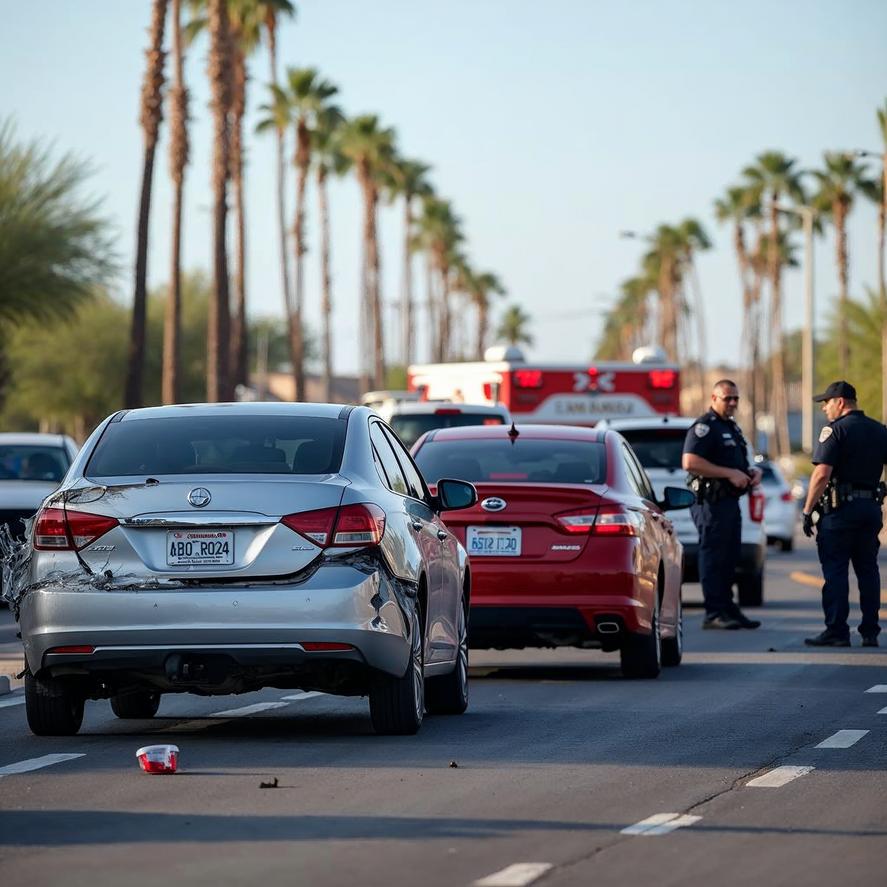
Unfortunately, based on your response, you may not qualify to file a claim. Most personal injury cases must be filed within two years of the accident, in accordance with the statute of limitations. Please consult with a licensed attorney to explore any possible exceptions or additional options.
Rear-end collisions are among the most common types of car accidents in Phoenix and across the United States. These accidents occur when one vehicle crashes into the back of another, often leading to property damage, injuries, and complex insurance claims. Understanding how to handle claims after a rear-end accident is crucial to protecting your rights and securing the compensation you deserve.
A rear-end accident typically happens due to factors such as distracted driving, sudden stops, tailgating, or adverse weather conditions. The driver who strikes the vehicle from behind is usually considered at fault; however, every case is unique and requires careful evaluation of the circumstances.
Taking the proper steps immediately following a rear-end collision can significantly impact the outcome of your claim. Here are important actions to consider:
First and foremost, check for injuries. Call emergency services if anyone is hurt. Even if injuries seem minor, getting a medical evaluation is essential, as some symptoms may appear later.
Collecting evidence supports your claim. Take photos of the vehicles, damage, skid marks, road conditions, and the surrounding area. Exchange contact and insurance information with the other driver. If there are witnesses, obtain their statements or contact info.
In Phoenix, it's advisable to file a police report after the accident. The report provides an official record that can be crucial when submitting your claim to insurance companies.
Once the initial steps are taken, navigating the claims process is the next priority. Here’s what you need to know:
Promptly report the accident to your insurer. Provide accurate information and documentation to support your claim. Being transparent helps prevent delays or denials during claim processing.
Usually, the driver who rear-ends another vehicle is found at fault due to negligence. However, factors such as abrupt lane changes or faulty brake lights on the other car may affect liability. Insurance adjusters will investigate these details.
Keep detailed records of all damages to your vehicle and any medical treatments related to the accident. Receipts, medical bills, and repair estimates strengthen your case and help determine the compensation amount.
Insurance companies may offer settlements to resolve the claim. Understanding the value of your damages—including vehicle repair, medical expenses, lost wages, and pain and suffering—is key to negotiating a fair amount.
Claimants may face challenges such as dispute over fault, delayed claim processing, or initial offers that undervalue damages. Knowing these potential issues helps you prepare and seek help if necessary.
For a detailed explanation of the claims process, read our guide on rear-end collision claims in Phoenix. Additionally, understanding the types of coverage included in your policy can be helpful; learn more about what insurance covers during such accidents.
If your claim is denied, undervalued, or you experience difficulty with insurance adjusters, consider consulting professionals who specialize in motor vehicle accident claims. They can offer guidance on the next steps to take and how to protect your interests effectively.
While accidents happen, adopting safe driving practices can reduce risks. Always maintain a safe following distance, stay attentive, avoid distractions, and adjust your speed to road conditions. The National Highway Traffic Safety Administration provides valuable resources on driver safety and accident prevention.
Understanding how to handle claims after a rear-end accident in Phoenix equips you to deal with insurance companies confidently and protect your rights. Make sure to document everything meticulously, meet all deadlines, and seek expert advice when needed for the best possible outcome.
Unfortunately, based on your response, you may not qualify to file a claim. Most personal injury cases must be filed within two years of the accident, in accordance with the statute of limitations. Please consult with a licensed attorney to explore any possible exceptions or additional options.